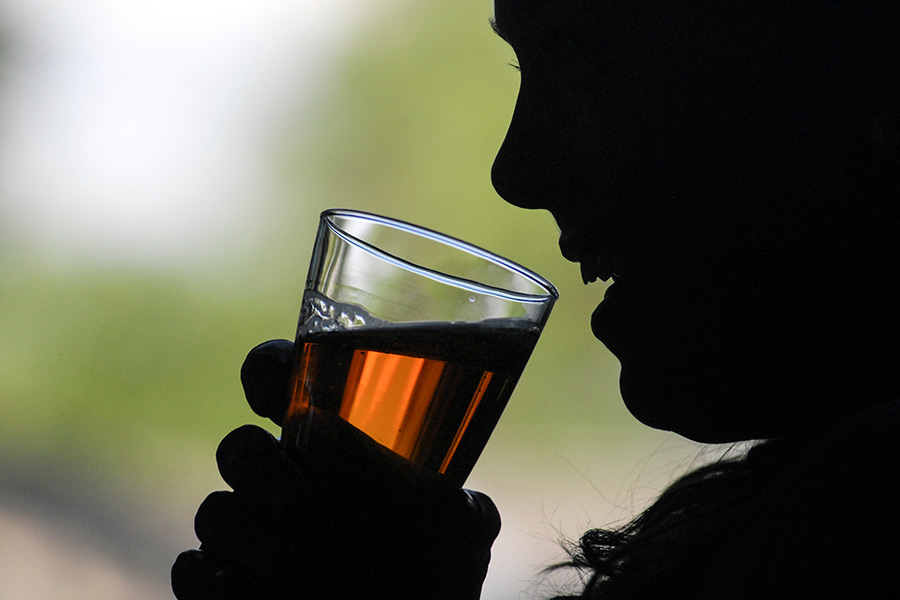“Whiskey is for drinking and beer is for fighting,” Republican state lawmaker David “Doc” Moore said Friday morning at the Capitol in Helena.
The old adage has a new twist at the state Legislature, where members of Montana’s alcohol industry are quarreling over a pair of proposed bills that would tweak parts of the law governing breweries and bars.
The two bills — one proposed by Moore, of Missoula, and another from Pat Noonan, D-Ramsay — drew a large crowd before the House Business and Labor Committee, the legislative group reviewing the proposals to decide whether to advance them to the House and Senate for possible passage into law.
Public comments from brewery and tavern owners from across the state, as well as alcohol distributors, took up the majority of the nearly four-hour meeting.
The committee adjourned until Monday and will take up the two bills for possible action next week, likely on or before Wednesday, according to Moore.
The contention centered on one particular proposal in Noonan’s bill — so-called license stacking — that would allow business owners to have both a liquor and brewing license, meaning someone with an all-beverage license could also own a brewery, or vice versa.
Currently, an individual can only own one type of alcohol license in Montana, although some business owners have found ways to work around the regulations by establishing separate businesses under different owners, but all working essentially under the same roof.
Noonan said the proposal is a compromise that emerged from a coalition of industry players, including the Montana Brewers Association and Montana Tavern Association, which met over the last 18 months to reach common ground on possible regulation changes.
Noonan said his bill, dubbed the “Montana Brewers Act,” or HB 326, is an attempt to solve problems in the regulatory system and encourage more distribution and growth within the industry.
However, not every brewery is on board with the proposal, with some owners saying it would create an unfair playing field that favors those with multiple licenses or larger breweries that are already established. Others say it would create “vertical monopolies” and further entrench the state’s quota system, which limits the number of all-beverage licenses, making them expensive on the open market.
“This bill will benefit only a handful of Montana breweries at this point and directly benefits the MTA,” said Sarah Dinning, co-owner of Cabinet Mountain Brewing Company in Libby.
“I think the MTA is very aware that with quota system restrictions in place, they are poised to handcuff brewery owners.”
Another key industry player — the Montana Beer and Wine Distributors Association — expressed its disapproval at the meeting. The association publicly pulled out of the coalition in recent months because of the license stacking proposal, and the distributors threw their support behind Moore’s bill, which seeks a change similar to one section of Noonan’s bill.
Under Moore’s HB 336, being called the “Pro-Beer Act,” the threshold for breweries hoping to operate a taproom would increase to 60,000 barrels annually.
Currently, a brewery cannot produce over 10,000 barrels of beer and still operate a sample room that charges for drinks to be consumed on site. A brewery that surpasses the 10,000 limit can only give away the samples.
Both Noonan and Moore’s bills would raise the limit to 60,000 barrels.
“This bill allows breweries to grow further,” Moore said, adding, “I believe it doesn’t make too many changes and doesn’t carry the baggage that the other bill does.”
Kristi Blazer, executive director of the distributors association, said Moore’s bill is a simple solution that would accomplish part of Noonan’s proposal but would not play favorites with license holders.
Moore’s bill received pushback from several brewery owners who spoke up Friday, with the majority of them saying they supported the heightened limits but would rather see Noonan’s license-stacking bill succeed.
“I believe HB 326 is better for the economic growth of the brewing industry in the state of Montana,” said Jeff Grant, co-owner of Draught Works in Missoula.
John Iverson, a lobbyist with the MTA, said Noonan’s bill offers more pathways for business development.
“(Moore’s bill) allows one pathway to grow. The other one adds three pathways to growth,” he said.
